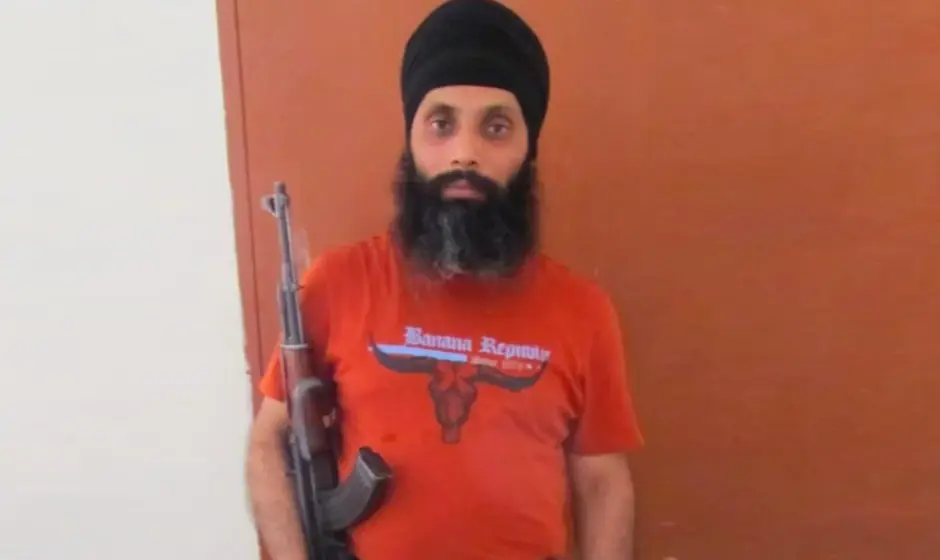Anti-Bharat vitriolic by Canadian Prime Minister led bilateral relations to an abyss. Steering troubled relations to normalcy rest with Ottawa.
Rohan Giri
Diplomatic relations between India and Canada have been thrown into abyss following insinuations on India’s possible involvement in murder of Hardeep Singh Nijjar, a proscribed terrorist identified as key member of Khalistan Tiger Force.

Canadian Prime Minister Justin Trudeau seems to have personally contributed to skewed debate on Nijjar who’s sought to be turned a hero by his government whose performance reportedly is tardy and found wanting on many fronts.
A sharp rebuke from India’s Ambassador to Canada Sanjay Kumar Verma for damaging Indo-Canadian relations seems to be very much in order given anti-Bharat stance pronounced strongly by Prime Minister Trudeau for political purposes.
Verma asserted that accusations by Canada lacked substance and may have been influenced by forces that were inimical to Bharat.
Allegations of India’s involvement in reported murder of Hardeep Singh Nijjar, a Khalistani terrorist who had obtained Canadian citizenship, emerged after Canadian Prime Minister Justin Trudeau’s address in the country’s Parliament on September 18.
He had claimed to have “credible evidence that the Indian government assassinated a Canadian citizen on Canadian soil.” This baseless allegation put a strain on bilateral relations as no credible evidence was shared by Ottawa to support its claims.
India recognized as a robust and healthy democracy has no historical record of engaging in such clandestine activities and consistently championed the path of peace both regionally and globally.
In an interview to ‘The Globe and Mail’, Indian envoy Sanjay Kumar Verma offered a forceful rebuttal to these allegations chastising Canada for failing to furnish any concrete or pertinent details that would substantiate their accusations. He expressed apprehension regarding the investigation’s integrity, hinting at possibility of high-level interference in investigative proceedings.
The accusations triggered significant diplomatic fallout and unilaterally Canada escalated further by suspending an Indian diplomat. Retaliating, India declared a senior Canadian diplomat persona non grata and requested Canadian government to withdraw a substantial number of its diplomatic staff from India. This diplomatic spat loomed as a potential threat to broader bilateral engagement between two countries.
Verma questioned validity and admissibility of purported evidence underpinning Canada’s claims pointing out that diplomatic exchanges were safeguarded by international law and not admissible in a legal context or for public revelation.
He called on Canada to explain methods used to obtain these conversations and pointed to possibility of wiretaps and impersonated voices to justify Ottawa’s claims against New Delhi.
India has on multiple occasions drawn attention to pending extradition requests which it alleges Canada has consistently overlooked. Following accusations, Bharat’s Ministry of External Affairs labeled Canada as a “safe haven for terrorists, gangsters, and criminals.” This characterization was not made lightly; it mirrors perception of contemporary Canada.
Otherise, fabric of Indo-Canadian relations has been further frayed by a deeply troubling series of events in Canada. There is a growing wave of hostility, as sacred Hindu sites and assets of the Indian community have come under repeated attack. This disturbing trend has escalated to a point where safety of Indian diplomats in Canada is now in jeopardy. After Hardeep Singh Nijjar was killed, a torrent of direct threats and vitriolic hate speech was unleashed against Indian diplomatic corps.
Atmosphere of intimidation and outright bullying has been starkly illustrated by appearance of menacing posters throughout Canada. These posters not only advocate for assassination of Indian officials but audaciously depict them as adversaries of Canadian state, ratcheting up the diplomatic tension to an alarming degree. This volatile situation casts a shadow over Indian community in Canada and puts the diplomatic ties between the two nations on a knife-edge.
In a comprehensive analysis, as international think tank, Centre for Integrated and Holistic Studies, raised alarm in its latest report about the escalating threat of Khalistani extremism in Canada, particularly during Prime Minister Trudeau’s administration. The report stressed that this radical movement, bolstered by Pakistani support, has intensified, putting a strain on Canada’s social fabric and its long-standing multicultural values.
Ties between Canada and India have deteriorated, attributed in part to Trudeau’s interactions with Khalistani proponents and his unsubstantiated accusations against India. These actions have not only marred Trudeau’s leadership but reflect political influence of Jagmeet Singh, NDP leader known for his Khalistani linkages and frequent anti-India commentary.
CIHS report warned that the Canadian government’s perceived indifference towards growing Khalistani presence could incentivise separatist sentiments, potentially triggering a secessionist referendum. Such developments threaten Canadian unity and sovereignty. The think tank underlined the urgency for Canada to repair its diplomatic relations with India.
Moreover, it called on Western nations to tackle Khalistani extremism with an unwavering adherence to the rule of law and a commitment to security, human rights, and democratic principles. The response to this issue is critical, the report concludes, as it will significantly shape the future of international relations and the global order.
Trudeau has seemingly overlooked these critical issues. The unchecked growth of separatist movements poses a real and significant threat to the security of Canada. It seems he fails to acknowledge the true character of terrorism, which knows no religious or ideological limits. No amount of diplomatic veneer can mask this reality. Historical patterns suggest that the consequences of neglecting such threats often have a way of returning to their origin with compounded force.
Addressing these challenges with substantive dialogue and addressing the influence of Khalistani factions in Canada is crucial for restoring confidence and strengthening the bilateral relationship. The current diplomatic impasse highlights the importance of adhering to diplomatic norms, international law, and the protection of envoys abroad. Prime Minister Justin Trudeau’s approach, which seems to prioritise internal political advantages over international protocol, reflects a departure from statesmanlike conduct. Such a strategy may jeopardise the diplomatic bond with India and other law-abiding democracies worldwide.
(Author is a doctoral fellow at Amity University in Gwalior, content manager at Centre for Integrated and Holistic Studies, New Delhi)

